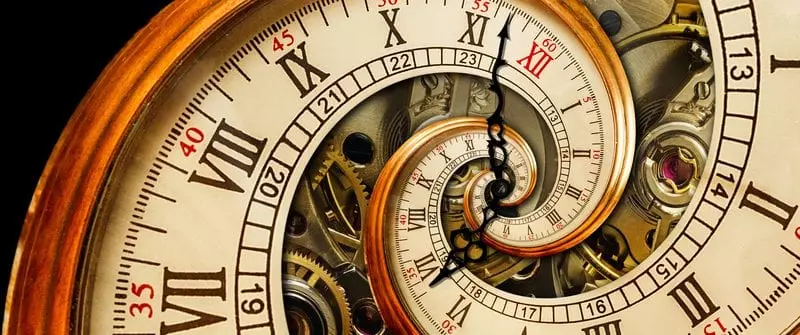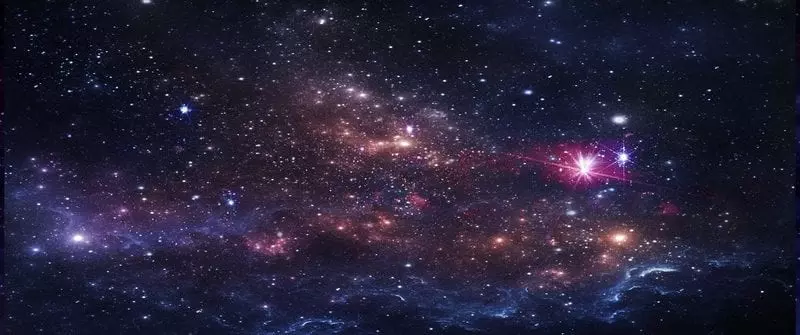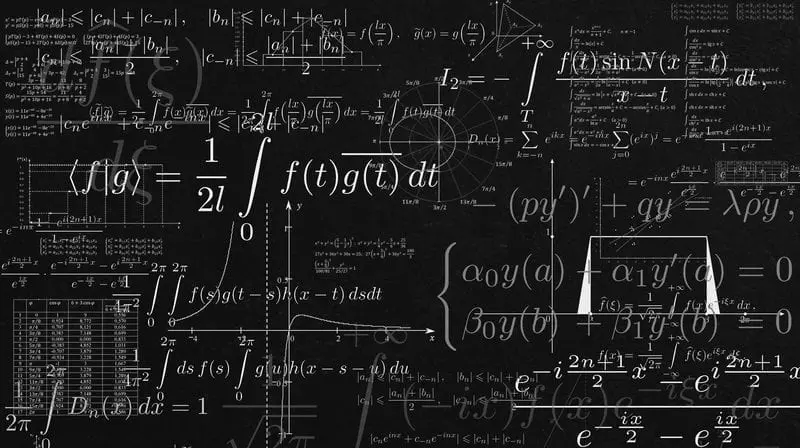We human beings have difficulty thinking even about simple aspects of time. Consider these corrections to six popular misconceptions.
Misconception 1: Time travel is theoretically possible
It’s not.
Misconception 2: Measurement of time equals time itself
It doesn’t. Simply pointing out this nearly ubiquitous error should suffice to correct it. Secular folks and believers alike frequently assume this non-sequitur with Christians suggesting that there could be no time prior to the Earth’s orbit or its rotation. Their confusion equates to the claim that if man possessed no ruler then there could be no length, or no scale there could be no gravity, or no speedometer then no velocity, so no clock, no time. Thoughtlessness abounds. The measurement of something does not equate to the thing itself and (as pointed out since at least 1885 by the Rev. J. J. Smith’s Duration as Applied to God) neither does the ability or lack thereof to measure something equate to the thing itself.
Misconception 3: Time flows toward the future
 Time’s arrow is almost universally described as pointing from the past to the future such that the current of time flows forward. Of course this is a metaphor, yet the direction of this arrow is wrong.
Time’s arrow is almost universally described as pointing from the past to the future such that the current of time flows forward. Of course this is a metaphor, yet the direction of this arrow is wrong.
The truth is the reverse. For to whatever extent we may speak of time flowing, say, as a river, then to that extent time flows from the future into the past, from its source into the depths. The current of time brings the future into the present and the present into the past. For, which is more likely to be flowing suspended perfectly in time, a fjord or the future? A pebble or the past?
Regarding rivers, men build anchors and docks to resist their flow. Other objects though, like bubbles and twigs, readily float along with the current. Regarding time, what is it that resists its flow, and what rides in its current? Dates, for example, ride the current of time keeping pace perfectly with its flow. Tomorrow’s date, yielding no resistance, suspended perfectly in time, readily moves with the current and will eventually arrive not at a point further into the future but being carried by time will eventually arrive at the present and then recede into the past.
An entire book written on the topic, Coveney and Highfield’s atheistic Arrow of Time, inaccurately speaks of “time’s forward movement.” Christian philosopher Ryan Mullins in his fascinating book, The End of the Timeless God, published in 2016 by Oxford University Press, describes the “A-Theory” writing that time “is constantly moving forward.” Merriam-Webster defines time as a continuum “from past through present to future”.
Incorrectly men assume that the current of time sweeps us from birth to death, which would be moving us toward the future. But more accurately, the current of time eventually sweeps our entire earthly lives into the past. Time does not carry our birth forward into the future, nor (as it might if time flowed forward) does it forever postpone our physical death pushing it later and later. Rather, “I” am like a floating buoy anchored to the river bed bobbing and resisting the flow of time.
Mullins writes of “endurantism” and uses the common phrase, “persist through time”. An astronaut does not persist through his spaceship but he persists through space, which, as he travels is gradually receding behind him. Thus time is not carrying us, but we are persisting through it. The carrying capacity of a river’s current, how much sediment it can transport in suspension, depends upon the current’s speed.
Considering everything that exists, both physical and spiritual, the incorrect view of time flowing forward suggests an absurdity. For if time were actually flowing forward, it would need to have its own carrying capacity. Time would then have to possess whatever features were necessary to transport every physical particle and every spiritual entity, temporally forward.
Or, every physical particle and spiritual entity would have to possess whatever features were necessary to hold onto time as it carried them. Either way, that’s quite an onus to put on something as ethereal as time. Rather, the passage of time pleases Ockham. No carrying or latching required, time simply flows backward, bypassing all. Contrast then “events” to people and objects anchored to resist the flow.
Events are not similarly anchored. Defenseless to the flow of time, as so much sediment suspended in a current, events are whisked into the past. An event belongs first to the future, then to the present, and finally to the past. In this sense, things can resist the flow of time but events cannot. Consider also markers to moments in time. Temporal markers lack physical mass and spiritual existence. So they flow perfectly with the current of time.
Thus on the day of this writing, the date of January 1, 2020 is in the future, floating toward the present, caught up as it is perfectly in the current of time. That date will eventually reach the present and then, as age piles on top of age, greatly recede with the flow of time carrying it forever further and further into the distant past.
Though nearly ubiquitous, the misperception that “times flows forward” bringing us into the future is not harmless. Here tautologies abound. The murkier the water the less transparent it is. And the less accurately we think about time the more erroneous our understanding. For those who unwittingly view time as having a carrying capacity (bringing us into the future) may be hindered from perceiving the impossibility of time travel, may resist presentism (that the present is all that exists), and may harbor other confusions about the nature of time itself.
In reality, we resist the flow of time and live forever and only, as does God, in the present. Which brings us to the best definition: Time is the beginningless, endless, present, continuous, irreversible future to past dimension of change.
Misconception 4: God cannot cross an actual infinity
 Because it would take infinitely long to cross an infinity, many philosophers claim that not even God could cross an infinity. Thus, they claim if He lived “in time”, then regardless of how long He has existed, the Lord Himself could never reach any particular point in time, let alone reach “the present”, because He would have to cross an infinity to arrive at this (or that) moment.
Because it would take infinitely long to cross an infinity, many philosophers claim that not even God could cross an infinity. Thus, they claim if He lived “in time”, then regardless of how long He has existed, the Lord Himself could never reach any particular point in time, let alone reach “the present”, because He would have to cross an infinity to arrive at this (or that) moment.
On How to Cross an Infinity: However, consider the relationship between two valid arguments: everything that has a beginning has a cause and likewise, nothing that has a beginning can cross an infinity. God, however, has existed through the “beginningless past”.
Though we reject much of Wes Morriston’s reasoning in his paper Beginningless Past, Endless Future, and the Actual Infinite published in 2010 by the journal Faith and Philosophy (Vol. 27, No. 4, pp. 439-450), we agree with his biblical conclusion, that God has existed through the beginningless past. The vast majority of Christian theologians though, who reject that God has existed through the beginningless past, typically do so by being inconsistent. Therefore their objection is easily neutralized and then answered. For example, William Lane Craig rejects the possibility of an actual infinity. (See his reformulated medieval Islamic Kalam cosmological argument.) So along with many theologians he disagrees with the biblical argument presented above of: “from everlasting to everlasting”, and thus he denies that God has existed throughout time immemorial, infinitely into the past. For if an actual infinity cannot exist, Craig argues, then even God cannot cross one. (Aristotle, for example, claimed that the infinite is never actual; he, however, did not know God.)
Inconsistency: Yet while Craig doesn’t admit it, he himself believes that God has crossed an actual infinity. For God’s thoughts are actual. They are not merely theoretical. They are actual. They are His thoughts. And Craig believes that God has had exhaustive foreknowledge of a kingdom that never ends. That of course would require divine knowledge of an infinite future, with this knowledge comprised of actual thoughts in God’s mind. (This would be like God having counted to infinity.) Further, because Craig happens to hold the untenable and rather grotesque belief that God knows every possible future, that philosophical claim requires God to cross an infinite number of actual infinities. (This is because there are an infinite number of possible futures. Forget about Chuck Norris doing so twice, this amounts to a claim that God counted to infinity an infinite number of times.) Instead, in actuality, God has once crossed the single infinity of the beginningless past.
Assuming the Conclusion: Using a typically unstated assumption, an argument against God’s “beginningless past” insists that He could not have crossed an infinite past because regardless of how much time has actually passed, “infinity” would require passage of even more time to arrive at any given moment. The unstated assumption in this objection however is that it assumes its conclusion, namely, that this past period must have had a beginning. For this objection essentially asserts that this past period that God has existed through is of finite duration.
Theologians mishandle this issue the way that atheists mishandle the argument that everything that has a beginning has a cause. Bertrand Russell, by asking “Who made God?”, assumes he has either falsified Christianity or disproved the argument. Of course, on its face, Russell has done neither because his application falsifies only the pagan cosmogonies that originate their gods, but he leaves untouched the eternal God of Scripture. Likewise, theologians (inherently) take the valid argument that nothing that has a beginning can cross an infinity and misuse it by claiming, “God can’t cross an infinity.”
If there is a valid theological system that denies God’s ability to cross an actual infinity, then it would not support a philosophical claim that contradicts its own system (see Inconsistency, just above), and neither will it merely assume its conclusion.
Mathematics 101: Let’s consider an analogy from geometry, and then an excuse from mathematics. As an illustration, a geometrical line is infinite in both directions whereas a ray has a terminal point yet is infinite in one direction. For our analogy, consider the ray as extending through eternity past and being terminated in God’s present. For the present is where God lives, in the fullness of time so to speak, with God’s past illustrated by that ray. Consider also that Georg Cantor died only in 1918.
Perhaps there is an excuse then for theologians from who failed to understand God existing in time, who lived prior to this mathematician who taught the world so much about infinity. (Remember that mathematicians had problems even with the concept of negative numbers until the 17th and 18th centuries, let alone with infinity.) So Craig’s Islamic theologians and countless Christian theologians (including Augustine, even though he was right to apply the concept of infinity to God), could hardly have comprehended the concept that God could have existed for an infinite time and that daily He also could add more time to that same infinity. God has done this however. For He must increase! So the terminal point on that divine ray has moved, for example, more than two thousand years since the moment of the Incarnation, something that few could have conceived of throughout much of human history.
Forward Looking: Finally, God put eternity into our hearts. Yet unlike God, our life is not endless in two directions but only in one, namely, into the future. So to use our analogy again, in reverse, you are like a “ray” that begins at a point (of conception) and then proceeds forever (Eccl. 3:11). Thus, a man does not “enter eternity” at his death, but at the moment of conception. Likewise, “And in Your book they all were written, the days fashioned for me, when as yet there were none of them”, does not refer to the days till your death but to fetology. That passage speaks of the developmental biology that God designed for the human fetus in the womb, with those days referring not to the days till your death but to the days till your birth.
Therefore, our eternal soul provides for us a context in which we can develop a gut feel for what it means to live forever (throughout eternity future). Yet we lack the divine intestinal fortitude, so to speak, that we would need in order to relate to His beginningless past. So because the above arguments falsify atemporality, one realizes that if God could not cross infinity, then He could not have existed for eternity. But He has.
In summary
by the Scriptural teachings regarding time (see above) and because time could not have been created (see above), we therefore teach that God’s goings forth are from of old, from everlasting, from ancient times, the everlasting God who continues forever, from before the ages of the ages, He who is and who was and who is to come, who remains forever, the everlasting Father, whose years never end, from everlasting to everlasting, and of His kingdom there will be no end.
Misconception 5: Eternity means timelessness
 It does not. Moses wrote, “from everlasting to everlasting You are God” (Ps. 90:2). And as R.T. Mullins of course correctly observes, “Jesus grants an everlasting life, not a timeless life.” In Christianity’s first three centuries, its leaders taught free will. See kgov.com/300. Yet many of those early Christians undermined that biblical teaching by also holding a non-biblical one, atemporality.
It does not. Moses wrote, “from everlasting to everlasting You are God” (Ps. 90:2). And as R.T. Mullins of course correctly observes, “Jesus grants an everlasting life, not a timeless life.” In Christianity’s first three centuries, its leaders taught free will. See kgov.com/300. Yet many of those early Christians undermined that biblical teaching by also holding a non-biblical one, atemporality.
And though Mullins seems to disagree, the doctrine of timelessness entered Christianity through a widespread commitment to Greek philosophy. So Christianity’s divine timelessness arose not from Scripture but from the teachings of Plato, most fundamentally, on immutability. See tiny.cc/immutability-from-plato. On that crooked foundation, many theologians of both Arminian and Augustinian/Calvinist perspectives eventually slid into the false teaching that God’s creatures could not decide anything other than what had been eternally foreknown.
Misconception 6: Unchanging omniscience could tell time
Unchanging omniscience is a contradiction. Some knowledge cannot be held statically, including something as simple as the current date and time. Even if such a deity knew Earth’s entire history moment by moment, He would have no way of knowing what time it is right now to us creatures, including what day it is, the month and year.
The concept of divine static knowledge is defective. One can know the script of a stage show, but to know at what point the cast is at in a performance requires a different kind of knowledge that cannot even theoretically be held statically. It is a trivial matter for created human beings to know which acts and scene a performance is at in a play, or what is the date.
The absurdity though of atemporality is demonstrated in that such trivial information is unattainable for an unchanging omniscience. This realization enables theologians to build a list of things that our dynamic and free God can know but that an unchanging deity could never know. For example, if the classical description of God held by Calvinists and Arminians were true, that He has unchanging knowledge, here is a tiny list of the almost infinite things that such a God could not know:
– What time it is. What day it is. What month it is.
– What year it is. If it’s the 21st century. Whether it’s AD or BC.
– How long has it been since creation and since the flood.
– How long has it been since the cross (or, is the cross yet future?).
– How long until the Second Coming.
– How many people are in your family.
– How many people have died.
– How many people are living currently on the Earth.
– How many miles on your car and how full its gas tank is.
– Etc.
[Excerpted from Pastor Bob Enyart’s lengthy page: Is God Outside of Time?]








Hello, Bob. GREAT work over there at RSR. I’m wondering if your idea of time flowing from the future to the past was inspired in any way by Rousas J. Rushdoony? I first read the concept in Rushdoony’s 1973 book, “The Institutes of Biblical Law.”